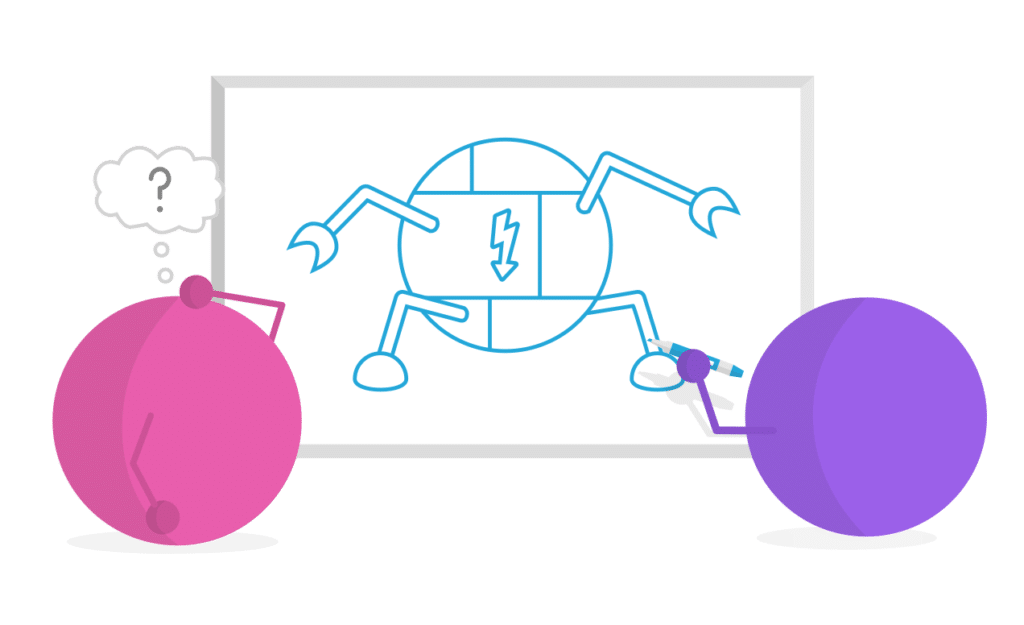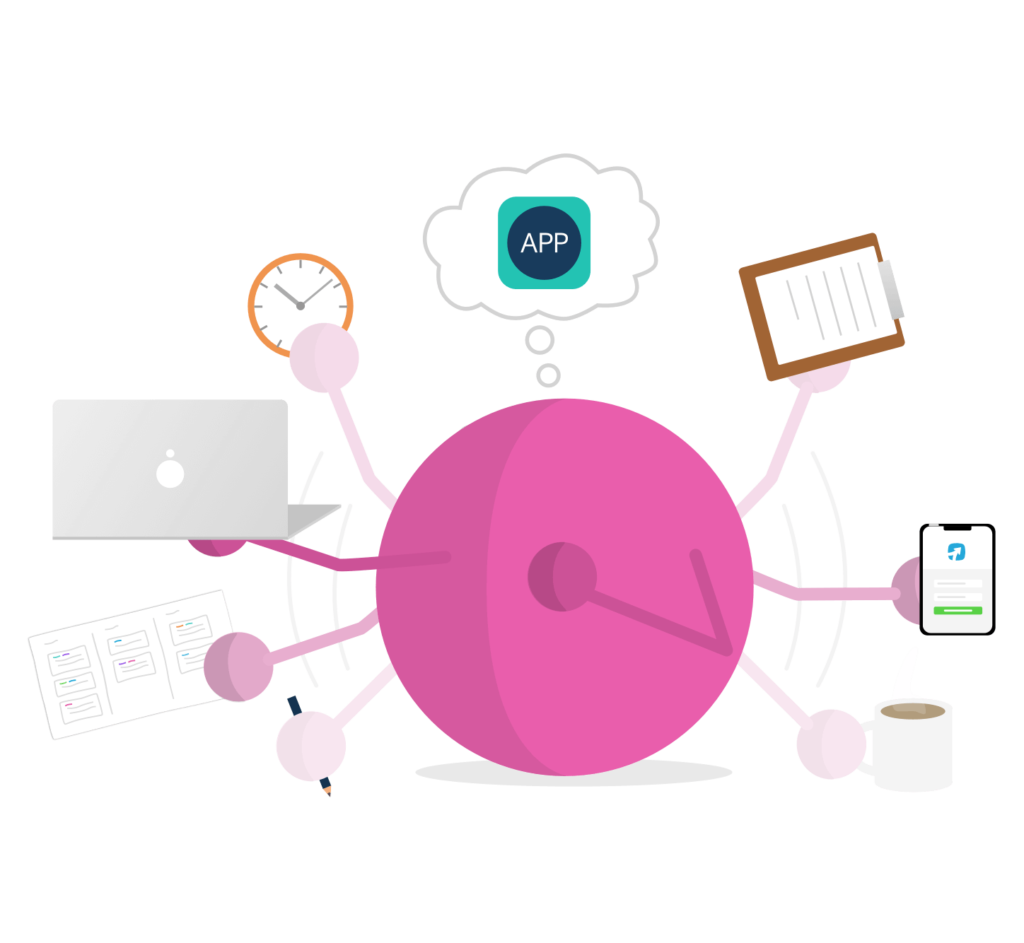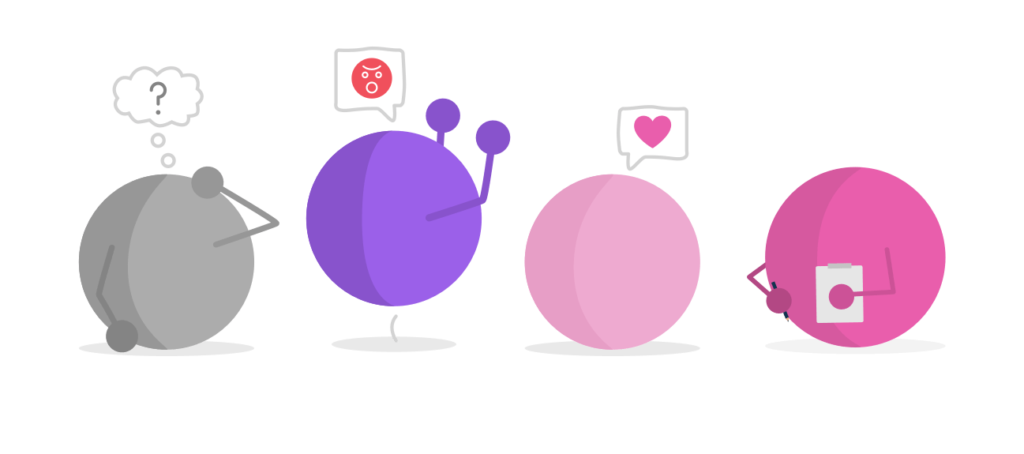What is a Product Manager?
If you’re wondering “what is a product manager?”, considering hiring a product manager or starting on a career path for product management, you’re probably asking what it’s all about. Or maybe you’ve just landed a job and aren’t sure what to do next? Don’t worry, we’re here to help!
The job of a product manager is to discover market problems, and then define what should be built within their product to solve these problems. Their goal is to improve outcomes for the people who use their product. They must identify those ideas that should provide value for the business, and then help the rest of the business to turn those ideas into reality.

Sounds simple enough, right? The problem is that there will always be a wide range of opportunities to pursue, and each one of them will take time, money and effort. So product managers must use their skills, knowledge and the tools at their disposal to help their organization make good decisions about what to do next.
Product managers must ask the questions needed in order to make tough business decisions about new product features or enhancements. Marty Cagan, product management guru and partner at Silicon Valley Product Group, explains that a product manager should always consider value, usability, feasibility and business viability. This means that they should look at the following when deciding what to work on:
- Will this provide value to our customers?
- Is this change usable?
- Can we deliver it – is it feasible?
- Can our business support this change – is it viable?
The answers to these questions will help the business to decide where to invest in order to get the best return on investment.
What does a Product Manager do?
Day-to-day, a product manager communicates with different people, both inside and outside their organization, either to learn, or to share their learning. This means that it’s important for them to understand the organization’s different business functions. This is because they must facilitate and broker discussions between technical and business stakeholders. Product managers also need to have conversations with customers and end users of their product, and to be able to communicate at both a strategic and a detailed level, depending on the conversation. Finally, it’s important for product managers to document what they learn as they go, so they can easily use what they’ve learned to make the best decisions.
In general, a product manager is responsible for:
- Carrying out research on market needs by collecting feedback, reviewing data and examining the market landscape
- Discovering problems to be solved, based on the research they’ve carried out
- Identifying the most valuable opportunities for the business – which bets are most likely to pay off?
- Working with their product team to identify potential solutions to those valuable opportunities
- Defining what success looks like. For example, what outcomes should be expected, and how can they be measured to assess whether they’ve been achieved
- Experimenting to determine the most successful solution
- Measuring success and determining next steps
A product manager’s goal is to provide the best outcomes for customers, with the smallest possible investment.

Product Manager’s day-to-day job
It sounds like a lot, doesn’t it! But there are some key tasks that product managers carry out on a daily basis:
- Collect feedback on market needs (in person, on zoom, via surveys or via customer-facing team mates)
- Define the product strategy based on the needs of the market and business objectives – this is known as creating the product roadmap
- Communicate the strategy to others, and seek to understand how it could be improved
- Break down the strategy into executable pieces
- Work with design and development teams to create product specifications
- Collaborate with customer-facing functions to help with their go-to-market activities

Product Management vs Project Management
A product manager’s responsibility is discovery rather than delivery. The skills that deliver a successful project – resource management, capacity planning, budgeting – are very different from those needed to uncover opportunities. Product management is not project management – that’s why we also say that a roadmap is not a release plan. In short, a Product Manager defines “what” and “why”, while a project manager defines “when”, “how” and “who”.
What makes a Great Product Manager?
A great product manager brings together a diverse, cross-functional team of people so that they solve a problem. They’re entrepreneurial and know how to to break big problems down. And they can see how to provide value in a way that reduces business risk. They use tools that help them to gain insights and make good decisions. Above all, they’re data driven and are excellent communicators.
If you’re looking for ways to ensure you stay up to date with Product Management best practice within your work start a trial now to see how ProdPad can help you.
